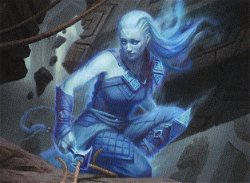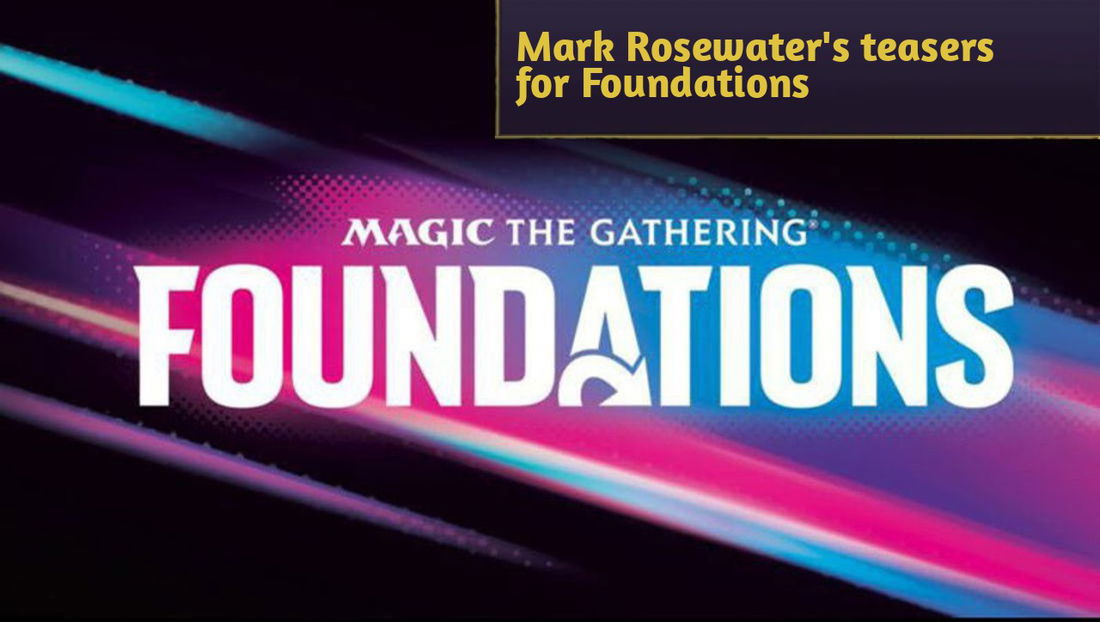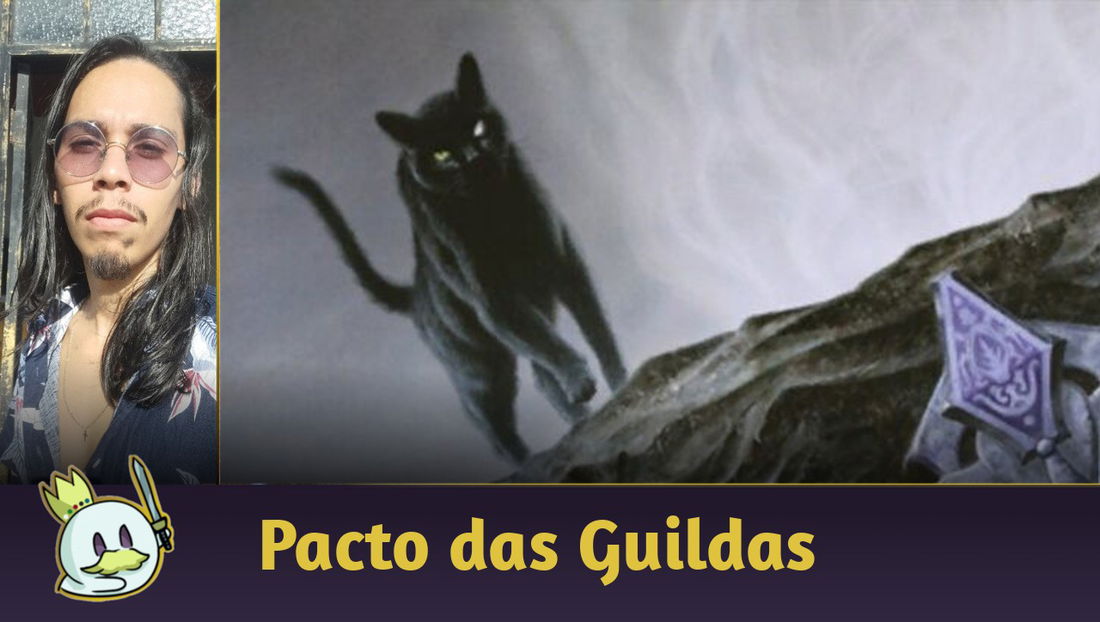Pioneer is a format that doesn't yet have a deck category that is very common in Modern and Legacy: Death & Taxes. And without cards like Aether Vial to cheat on mana costs or Stoneforge Mystic to create an equipment toolbox that includes Batterskull or Kaldra Compleat, it's likely that this type of strategy will be absent from the format for a long time.
This doesn't mean, however, that the format lacks creatures with inherent qualities to respond to the Metagame. Archon of Emeria, for example, has become a staple and worthy of maindeck due to the rise of Prowess decks combined with the constant presence of Izzet Phoenix at the top, and with the recent release of Enduring Innocence, we have a good opportunity to revisit one of Pioneer's oldest archetypes - Selesnya Company!
Decklist
This is the standard list in almost all numbers compared to what we see in Challenges and in the version that reached the Top 8 of the US Regional Championship. There are two slots that can be considered flexible in this list, and I occupied both (one in the maindeck and one in the Sideboard) with Voice of Resurgence.
It is worth mentioning that Selesnya Company is a very adaptable deck with a wide range of answers for different Metagames. We have more lifegain and answers against artifacts and enchantments with Knight of Autumn to specific answers against cards like Liliana of the Veil with Loxodon Smiter, going through a dozen options for the entire category - this is the best version of the archetype for the format today, but it may not be the same in three or six months due to the meta call nature that it adopts.
Maindeck

Our early game goal will almost always be to jump from one mana to three by turn two. As such, we need the most unconditional mana dorks that Pioneer offers, including a set of Llanowar Elves and Elvish Mystic.

That doesn't mean we don't have our efficient two-drops.
Thalia, Guardian of Thraben is sometimes the difference between winning and losing a game. Her taxing effect ensures that our creatures live for another turn against a sweeper, forces less explosive plays from decks like Rakdos Prowess and Izzet Phoenix, and can cause headaches against other archetypes that resort to a lot of non-creature spells.
Voice of Resurgence is a kind of backup for these matchups, especially against Azorius Control. It is a flexible one-of slot, so add whatever seems most appropriate here.
Kellan, Daring Traveler is a cheap source of card advantage and has a decent body for attacking and blocking in Aggro mirrors. With 35 creatures with a mana value of three or less, Kellan has over a 50% chance of hitting one of them on top.

One of Selesnya Company's advantages is its ability to interact with the board through powerful ETBs or relevant static abilities.
Aven Interrupter is the Spell Queller we have at home, but it grants an “extra turn” to its controller when exiling an opponent's key spell. Capitalizing on its ETB is essential to pressure the opponent, and it is best to save it for key cards that can turn the tide of the game.
Anointed Peacekeeper usually provides us the information that defines the best cast for Aven Interrupter. Its ability also deals with unwanted Planeswalkers and activated effects of other troublesome permanents, such as Agatha's Soul Cauldron.
Archon of Emeria is the biggest meta call on this list today, being an answer against two of the best decks in the format: Rakdos Prowess and Izzet Phoenix. Its ability to delay nonbasic lands is also useful against Lotus Combo and Enigmatic Incarnation, or any other archetype with a greedier mana base.

Skyclave Apparition and Werefox Bodyguard make up our board interaction. Cards like Brutal Cathar are also considered (and go in the sideboard), but their versatility in dealing with any permanent and the Bodyguard's Flash make up for their place in the maindeck.
Werefox Bodyguard can be considered another part of Selesnya Company's flex slots.

Our source of card advantage.
Enduring Innocence was the card that gave Selesnya Company a chance to become a relevant deck again in Pioneer. By triggering with almost any creature we have, it gives us a constant source of card advantage while also being a threat on the board - and if it is destroyed, it will come back as an enchantment to maintain its main role in the game.
Collected Company was once a staple in multiple formats, but now finds its home in Pioneer as one of the main ways for “go wide” Aggro decks to play fair games against value archetypes.

As is typical for Aggro decks in Pioneer, we aim to use as many lands as possible that come into play untapped, while providing us with access to the mana colors we need at the right time. Since we have several cards with 

Eiganjo, Seat of the Empire and Boseiju, Who Endures are answers to some common situations in Pioneer that also work as lands.
Shefet Dunes is relevant in longer games where we can fill the board, but we need to increase the pressure we exert. It plays a fundamental role in the mirror.
Sideboard

Brutal Cathar joins two more copies of Werefox Bodyguard to deal with games against Aggro. They are also complemented by Portable Hole, which works both against Rakdos Prowess and as a counter to Witch’s Oven in Jund Sacrifice

Elite Spellbinder and an extra copy of Anointed Peacekeeper are our best bet against attrition and control games, where we need to delay the opponent’s resources to dominate the match and win before a sweeper, or prevent them from burying us in card advantage.
The extra copy of Voice of Resurgence is a one-off addition for these matchups, but can become any other card as needed.

It's been a while since Gideon, Ally of Zendikar was relevant in the competitive Metagame, but in addition to helping in attrition matchups, this Planeswalker also plays a fundamental role against the mirror and/or other go-wide creature decks like Spirits, as its Glorious Anthem ability generates a major advantage for a deck that doesn't have typal synergies.
Unlicensed Hearse is our choice against Izzet Phoenix and Jund Sacrifice. It's possible to replace it with Rest in Peace, but the fact that it creates a clock on the board makes it an option as relevant as the enchantment for games where graveyard hate matters.
Sideboard Guide
Rakdos Prowess
IN

OUT

Azorius Control
IN

OUT

Each has its advantage in the game, so removing two of each seems like the appropriate option.
Izzet Phoenix
IN

OUT

Rakdos Tree
IN

OUT

Selesnya Company
IN

OUT

Wrapping Up
That's all for today!
If you have any questions or suggestions, feel free to leave a comment!
Thanks for reading!














— Комментарии 0
, Реакции 1
Прокомментируйте первым